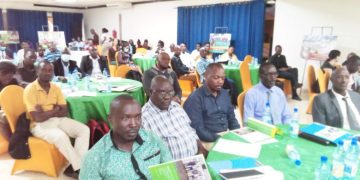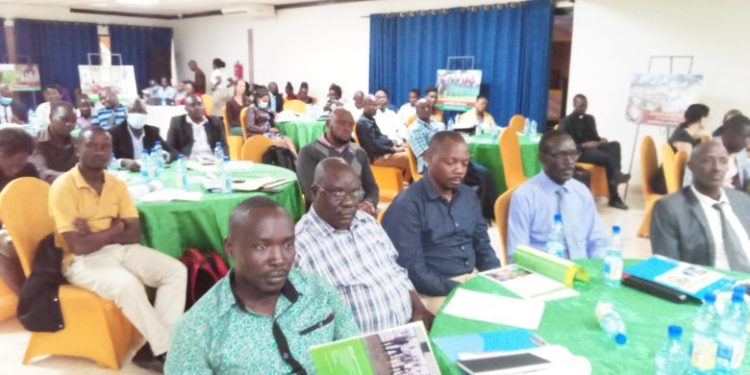The Food and Agriculture Organization (FAO) in Uganda has called for intensifying crop production through agroecological systems in order to grow a variety of crops while conserving the environment.
Dr. Owach Charles who represented FAO Country Director, Dr Antonio Querido at the launch of a five-year strategic plan by Participatory Ecological Land Use Management (PELUM) Uganda, said that there is a need to transform food and agriculture system into holistic and long term solutions using women, youth and indigenous people to enhance and deliver contextual solutions to local people.
He said the major reason why over 90% of crop varieties have disappeared is because of unsustainable production but that this can be solved through agroecology which supports the growth of various crops while sustaining the environment.
He commended PELUM Uganda for the partnership and pledged to continue working with PELUM to ensure smallholder farmers embrace sustainable agricultural production which, in turn, will guard against food insecurity.
“Congratulations on your new plan. It’s sad that globally 9% of the population live in extreme poverty and 690 million people are undernourished. It’s good to know that there is a consensus that everybody is committed to embracing agroecological agriculture,” he said.
He urged civil society organizations, leaders, and farmers to encourage and promote agroecological agriculture.
Speaking at the same event, Dr. Christopher Kyeswa, the PELUM Board Chairman, noted that the five-year Strategic Plan was developed from experiences, lessons learned, and demands of the people the organization serves through the network of her members.
Kyeswa noted that the new plan will help deepen action on agroecology through linking farming communities, producers and consumers to agroecological markets and improving governance of natural resources.
“The Strategic Plan is aligned with the aspirations of the third National Development Plan (NDPIII), Uganda’s vision 2040, and the United Nation’s Sustainable Development Goals (SDG) to ensure its relevance.”
Francis Nsanga from the Knowledge Hub for Organic Agriculture in Eastern Africa (KHEA), said that while working with PELUM as an implementing partner in Uganda, KHEA will intensify the collection of organic knowledge and avail it to farmers through available knowledge hubs and a new one to be commissioned.
He said that they will also build the capacity of farmers and network through the value chain actors through training master trainers in Uganda as multiplier targeting 72,000 farmers.
The PELUM Uganda Strategic Plan focuses on Nurturing Agroecosystems for Sustainable Livelihoods and Profitable Income for Generations with a goal to enhance improved livelihoods and resilience capacity of farming communities in Uganda.
Driven by the core values of accountability and transparency, professionalism, and innovation; this strategy, according to the Chairman, will contribute to the achievement of PELUM Uganda’s vision of Empowered and Resilient smallholder farming communities sustainably utilizing their natural resources.
The Head of Programs at PELUM Uganda, Joshua Aijuka, highlighted the achievements in the previous strategic plan period including establishment of a sustainable system of community seed banking where over 60,000 farmers participated, strengthened the capacity of farmers to manage plant resources, created the cookbook for Ugandan traditional foods profiled in different delicacies in Uganda and promoted the conservation of wild foods sources, among others.











